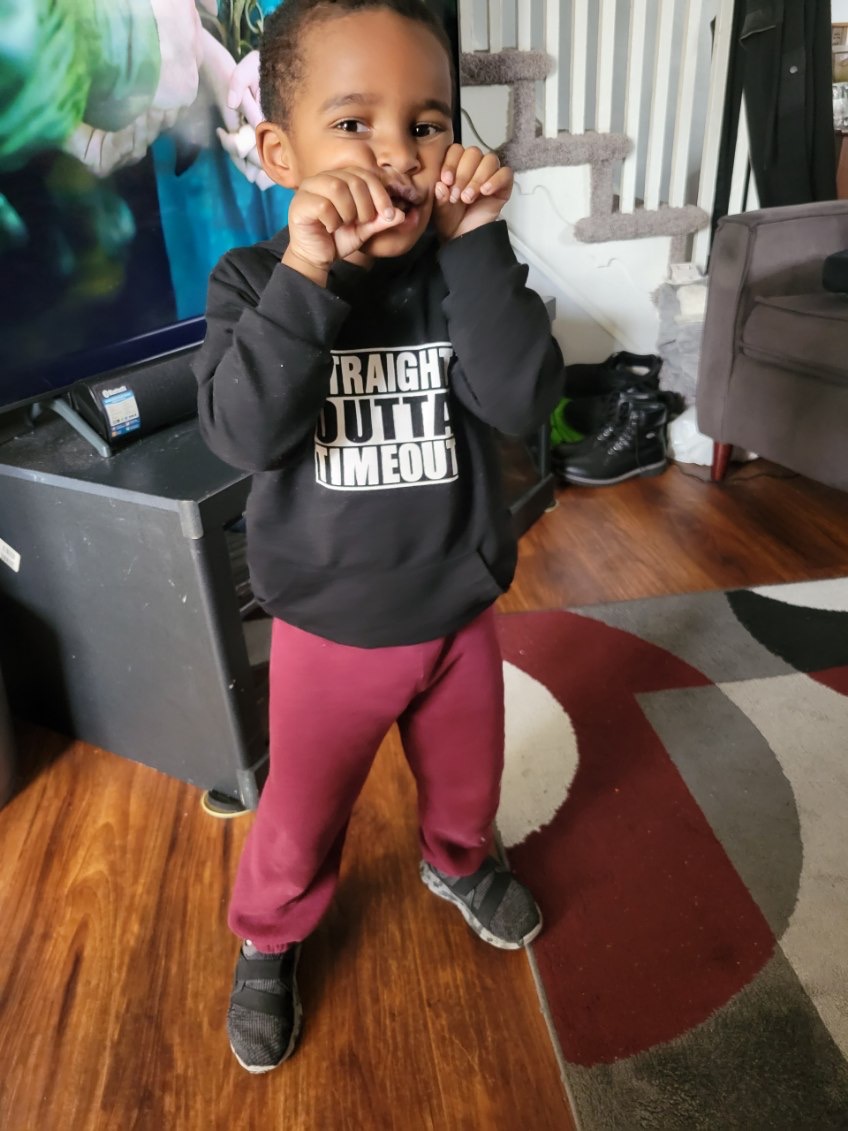Some of the greatest joys of early parenthood involve watching your baby learn to communicate and express themselves as they grow.
At this stage, newborns communicate mostly by crying and show feelings by crying and smiling.
For adults, humour is one of the main ways to connect with others, so it's natural to wonder when you can share this with your baby.
When do babies begin to laugh? And what is the best way to make them giggle?
Newsweek asked the experts.
When Do Babies Start Laughing?
Speaking to Newsweek, Dr. Stephanie A. Fox—a licensed psychologist and clinical assistant professor at the Carolina Institute for Developmental Disabilities (CIDD) of the University of North Carolina at Chapel Hill—said laughter in babies is "first seen in typical development around four months, with laughter in response to purely social stimuli (not physical stimulation) starting around six to seven months."
Newborns may smile from as early as the first week of their lives. However, these are considered "reflexive or spontaneous smiles in response to CNS [Central Nervous System] activity" and often occur during sleep.
"Elicited smiling in response to external stimulation" generally begins around four to five weeks from birth, Fox said.

Humor involves several neural, cognitive, behavioral and social-emotional components, explains a 2012 study in Infant Behavior and Development, a peer-reviewed journal, published by the U.S. National Institutes of Health website.
"Despite this complexity, infants smile (6 weeks) and laugh (3–4 months) early in the first year and long before their first gestures (6–8 months) or spoken words (12 months), suggesting that these universal means of emotional expression are of marked communicative, evolutionary and developmental significance," the study noted.
"Humorous exchanges between infants and parents may enhance their opportunities to develop a satisfying relationship, an idea that is consistent with research on humor and relationship quality in adulthood," the study said.

What Makes Babies Laugh?
Fox explained: "Physiologically, babies' laughter and 'humor' is a response to a build of tension followed by release, not unlike humor later in development."
At the early stages, when babies laugh, they're responding to physical stimulation, such as tickling, swinging or blowing raspberries on their bellies.
But as their laughter "becomes more social," they tend to laugh in response to "predictable, rhythmic and exciting social routines"—sometimes called Sensory Social Routines—with "big moments," the psychologist said.
For example, babies will laugh when you play with them by saying things like: "Where's baby? Where's baby?... Peekaboo!" or "I'm going to get you...Tickle, tickle, tickle!." This is why social games and songs are so popular for interacting with babies, Fox said.
Some babies require more stimulation, while others may need gentler and calmer approaches to make them laugh, she said.
How To Make Your Infant Giggle
Physical and auditory stimulation, such as a high-pitched voice or "motherese" (baby talk), are ways to make babies laugh at the earliest stages of their lives, according to Fox.
"Later in infancy, Sensory Social Routines, with build up and big moments, tend to elicit laughter," she said.

Should I Be Worried If My Baby Hasn't Started Laughing?
If your baby hasn't started laughing or smiling, the first port of call would be to evaluate the baby's sensory systems, such as through audiological and vision testing. Parents should consult with the child's pediatrician, Fox said.
The lack of laughter within the "expected developmental window"—especially lack of laughter in response to social stimuli—may indicate "developmental delay or developmental disability," such as autism spectrum disorder, the psychologist warned.
Parents should note the aforementioned expected developmental window is a "window" and not an exact age. This can be "a fairly wide window," sometime within six to 10 months, Fox explained.
Cat Tamminga, a coordinator at the Minnesota Department of Education, told Newsweek: "When a baby hasn't yet started laughing when they typically might, there can be many reasons why. We always encourage families or providers to make a referral to early intervention services for support about any worries," adding that "developmental expectations can be different from community to community, culture to culture, country to country."
"Professionals specially trained in early development support families in exploring concerns further and making recommendations for next steps. Sometimes this means services for the baby and family," Tamminga said.

Uncommon Knowledge
Newsweek is committed to challenging conventional wisdom and finding connections in the search for common ground.
Newsweek is committed to challenging conventional wisdom and finding connections in the search for common ground.
About the writer
Soo Kim is a Newsweek reporter based in London, U.K. She covers various lifestyle stories, specializing in travel and health.
Soo ... Read more
To read how Newsweek uses AI as a newsroom tool, Click here.








